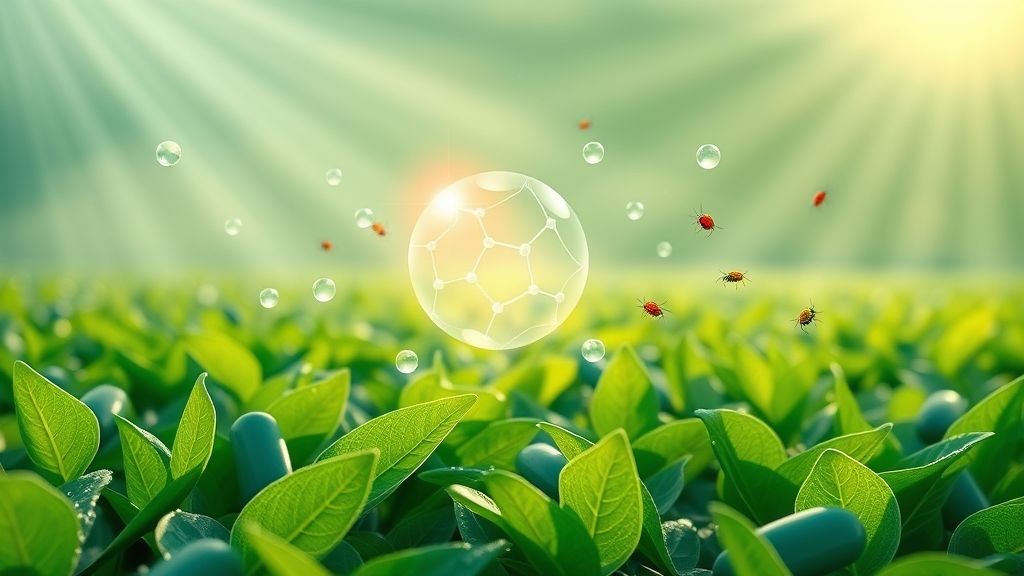
Boost Crop Productivity with ACTIVE NANOCAPSULES Technology.

Company Introduction
Follow our journey
With 25 years of experience in the agricultural business, particularly in crop protection and plant biotechnology, I've heard about the potential of nanotechnology in agriculture. According to the Nanotechnology Product Database, there are more than 9,000 nanotechnology-based products on the market, and today, only 231 of these are used in agricultural business.
From smart coatings for seed treatment to nanocapsules for the controlled release of agrochemicals, biological products, and fertilizers, not to mention antibacterial coatings for fruits, the list of applications is extensive and potentially expandable.
In any case, Japan has a leader in this sector, which I'm proud of. As part of strengthening my connections with innovation centers and nanotechnology fields in the agricultural business sector, I was pleasantly surprised to meet the Japanese startup Greengro. Founded in 2013, the company develops nanotechnology inputs for the veterinary, agricultural, human and animal nutrition sectors, as well as natural disinfectants and cosmetics.
Nanotechnology
Specifically in the agricultural sector, the startup is adopting nanoencapsulation technology for natural products to increase their effectiveness in plants and animals. The goal is to provide greater protection against natural enemies, a greater residual effect, safer ingredients, and a fully sustainable technology. For these reasons, I believe the growth opportunities for this market are enormous in the agricultural sector, despite the lack of data in this area. Regarding human healthcare, the use of nanotechnology is expected to cover a market worth $310 million by the end of 2025.
Because it reduces losses due to volatilization and degradation, nanoencapsulation technology is extremely promising, helping to reduce the number of applications and simplify material handling. It's also worth noting that the miniaturized size of nanoparticles allows for greater coverage of the plant or animal surface and provides greater consistency in the effect of the active ingredient. In the case of gradual release of ingredients, this is possible because the nanosystem adheres better to plant leaves and animal hair, prolonging the effect of the products.
Nanocapsules: Advanced Technology
In the case of Nanocapsules, what most catches my attention are the developed inputs of vegetable oils encapsulated with biodegradable nanoparticles, assembled in a line called Nano NZSE-5000. The nanometric size of the particles, which ranges from approximately 10 to 200 nanometers, allows for better distribution and penetration of the active ingredients into the plant surface, and the product's diffusion capacity enhances its insecticidal, fungicidal, and bactericidal activity. We're talking here about the technologies currently available for the product.
Nanocapsules also focuses on an environmentally friendly technology that can be used in conventional, agroecological, and certified organic systems. In this case, the products are extracted from biocompatible and biodegradable raw materials that use water as an adsorbent. This eliminates the need for organic solvents and eliminates environmentally polluting waste, another advantage of nanotechnology.
With the hope that this market will develop, I can't help but mention that Greengro was among the ten startups selected for the 2020/2021 Japan-China Business Incubation Program. Its solutions—which focus on three areas of high growth: natural solutions, biological products, and nanotechnology—were deemed particularly relevant to achieving one or more of the United Nations' Sustainable Development Goals.
GREEN GROW Innovations
Basic Microbial Technology
- Thermophilic actinomycetes MH-1
- Bacillus sterothermophilus CH-4
- LM1/2, which is closely related to Bacillus coagulans.
- C1/3, which is closely related to the short bacillus
Patents and Certificates
ATCC·PTA-1773
news
تنزيل المواد

تنزيل المواد
nAgro
Download de material

